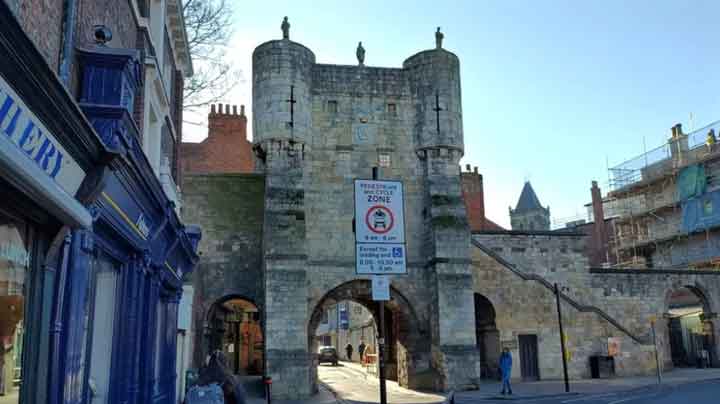The city of York, renowned for its historic charm and narrow streets, has found itself at the center of a growing concern: the blue badge parking ban and the support measures aimed at mitigating its impact. This permanent ban on disabled parking in pedestrianized areas of the city center was introduced in November 2021, ostensibly for security reasons. However, as time has passed, questions have arisen about the delay in implementing the promised measures to enhance accessibility for disabled individuals.
The Ban That Raised Concerns
The blue badge parking ban was initially enacted as a temporary measure during the COVID-19 pandemic to facilitate social distancing in York’s narrow streets. It was later made permanent, with the City of York Council citing the need for anti-terror defenses to safeguard visitors and shoppers. However, what has fueled concerns is the protracted timeline for introducing measures that were meant to offset the ban’s impact.
Promised Support Measures
At the heart of the issue are the commitments made by the council to improve accessibility for disabled people. These commitments included the installation of more city center seating and an expanded provision of mobility aids. While these measures hold the potential to significantly enhance the lives of disabled residents and visitors, their delayed implementation has left many frustrated.
Dame Judi Dench’s Call for Change
One of the most prominent voices advocating for an end to the blue badge parking ban is York-born actor Dame Judi Dench. She has been an impassioned supporter of the campaign to overturn the ban, emphasizing the importance of accessibility for all in York’s city center.
Mitigation Measures: A Step in the Right Direction
Recent developments have seen the council taking steps to address these concerns. At a meeting of the customer and corporate services scrutiny committee, James Gilchrist, the council’s director of transport, highlighted several mitigation measures that have been put in place. These include additional funding for services like Shopmobility and Dial-a-Ride, as well as the creation of more disabled parking bays outside pedestrian areas. While these measures are welcomed, questions linger about their timing.

Timing Matters
Labour councillor Pete Kilbane questioned whether it would have been more logical to have these mitigations in place before implementing the ban. In response, Mr. Gilchrist admitted that, if circumstances allowed, he would have preferred that sequence. Unfortunately, bureaucratic processes didn’t align with this ideal.
Evaluating Effectiveness
Katie Lomas, another Labour councillor and a blue badge holder, raised valid concerns about the effectiveness of these mitigation measures. It is crucial to not only implement measures but also assess their impact on the disabled community. Mr. Gilchrist acknowledged that, for some individuals, no mitigation measure could entirely replace the convenience and accessibility lost due to the end of blue badge parking.
Voices of Advocacy
Campaign group Reverse the Ban (RTB) has been at the forefront of the campaign to reverse the blue badge parking ban. Members of this group have decried the “discriminatory decisions” that have disproportionately affected disabled and older individuals.
Disability rights campaigner Flick Williams stressed the need for promised consultations, feasibility studies, and funding for mitigations to be delivered promptly when an adverse impact is identified for individuals with protected characteristics.
Dame Judi Dench’s Support
Adding her influential voice to the cause, Dame Judi Dench has wholeheartedly supported the campaign against the blue badge ban. She articulated that York’s city center should be a place accessible to all, including those with disabilities for whom accessible parking is essential.
